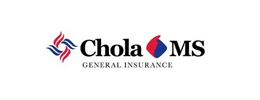Last updated on: September 19, 2025
Health insurance can be both helpful and complicated. Some people find it hard to understand the benefits and downsides of having health insurance. The pain points often include high costs, limited choice of doctors, and complicated policy terms. ‘Health Insurance Advantages and Disadvantages’ helps by breaking down these complexities into easy-to-understand parts. It helps users see where they can save money with preventative care and explains the key terms so they don’t feel lost or confused. By understanding these better, people can make informed decisions about whether health insurance is the right choice for their needs.
Consider Ravi, a 31 year IT professional living in Bangalore. Lately, the previous year he had an accident on his bike and stayed in hospital ten days. The hospitalization took nearly 3 lakh rupees. His health policy fortunately covered the major costs and the total amount he paid out of pocket was a couple thousand dollars. His cousin Anil, however, would have had to take a loan to be treated similarly to him, but he was uninsured. Going by the statistics, in actual sense, close to 75 percent of the Indians below the poverty line are so because of the health related expenditures. It is evident that health insurance is a sword and a decision worthy to consider in India.
We should look at the upside first: the numerous benefits of health insurance, and the inevitable drawbacks. We will find out whether health coverage would work if you choose it in 2025, what should be considered before making the choice, and the actual risks.
Having a health cover is not only about giving immunity to large bills. The greatest advantages with real life examples are as follows:
Accidental hospitalisation, surgery or a crisis treatment can immediately take out your savings. This economic destruction is guarded by health insurance.
Key features:
Indeed, registered members get more liberty in selecting hospitals and quicker access via cashless networks.
Highlights:
Did you know?
A number of the leading health insurers currently cover cashless claims even in planned surgery in overseas countries as long as there are no such facilities in India.
The money paid as a health insurance premium is not only meant to cover your health, but it saves you on tax.
Tax Saving:
Other questions people pose are:
Q. Is all family inclusive in health insurance?
A. Yes as you can use family floater scheme to cover yourself, spouse, children and dependent parents with the single sum insured.
It is critical to understand that cover is never perfect. Following are the worst demerits you must know about before purchasing any of the policies:
Due to non disclosure of exclusions, and out of pocket charges, many customers are left shocked at the time of making claims.
Typical Disadvantages:
Notwithstanding, rejection of claims because of the misunderstandings in documentation and policy wording is an actual cause of suffering.
Common Causes of a Claim to be Denied:
Yes, the cost per premium always goes up the older you get or when you file claims.
Did you know?
Other policies offer no claim bonus or discounts on maintaining a good lifestyle even though they are not sufficient to counter the increases in annual prices.
There are simply too many options in 2025 and one can be pretty confused. These are the most popular in a bulleted list:
Compare on age, family size, current illnesses and budget. It is easy to get quotes to compare on Fincover.com and apply online.
Other questions people pose are:
Q. Is it sufficient in India to cover employer health insurance?
A. Having the corporate cover is handy but could have low sum insured and few options after retirement, hence get personal cover.
Proper selection may keep you out of claim nightmares. To do a short checklist in 2025:
| Eligibility | Family Floater Plan | Individual Plan |
|---|---|---|
| Sum insured | Common to all | Individual to each |
| General premium | Less on families | More when the family is large |
| Who gets coverage | Family incl. parents | One person |
| Renewal conditions | Denied if one member claims | Independent of the other |
| Ideal | Young with no big illness | Old, with many illnesses |
Did you know?
Other insurers even provide online customer support via WhatsApp and AI chatbots that can track and direct claims in 2025.
Write a written complaint to the insurer. In case they are unresolved refer to Insurance Ombudsman or reach IRDAI Grievance Cell.
Other questions people pose are:
Q. Does Indian health insurance include day care treatments?
A. Yes, day care such as dialysis, minor surgeries that do not require 24 hours stay in a hospital is covered under most of the modern plans.
The process of getting covered is now quick. There is no visit to the agent or office required.
It is also possible to find a free call-back or chat to help in getting advice regarding health covers.
Health cover is not mandatory yet as in certain countries but states such as maharashtra have come with new government programs where insurance will reach every citizen by 2030. Best premiums should be achieved by getting covered by age 25.
Expert Insight:
Health insurance is now being recommended by many financial planners where it is the first and foremost element in a financial planning program, pre drone acquisition of life or investment products.
Other questions people pose are:
Q. Is it possible to change the insurance company without losing?
A. Yes, there is portability norms so that in case you are not satisfied with the company you are insured by then you can transfer wait period benefits to another insurance company.
Q. What is not contained in most health insurance policies?
A. Routine treatment of teeth, cosmetic operations, infertility, and pre existing conditions during waiting period, some mental disorders and non medical items are not normally covered.
Q. How much should be the sum insured of a family in 2025?
A. In an urban setting, in a family of four members, a minimum of 10 to 15 lakh rupees is advised because treatment is very expensive.
Q. Do India have government health insurance opportunities?
A. Yes, there are low cost or free cover schemes such as Ayushman Bharat, ESI and different state schemes that cover mostly the low income groups.
Q. what should I do in case I forget to renew my policy?
A. Majority of the insurers allow a grace period not exceeding 30 days. Further renewal is able to reset waiting periods and you can lose continuity benefits.
Q. is Covid and other future pandemics covered by health insurance?
A. Plans on and after 2020 include coverage of COVID 19 and any future diseases that the government declares as pandemic with possible caps.
Q. Can cashless hospitalisation apply in all diseases?
A. Most network hospitals do not charge patients when admitted planned or emergently provided you are a member of that network hospital; although, it is still best to check your insurer list prior to hospitalisation.
Understanding whether to take a health insurance policy in 2025 is a very personal decision. A policy is the second most important form of protection in a state where there is a high level of medical inflation and health risks are not inclusive. But, it is important to read your policy, understand what is not covered (exclusions) and compare more than price, look at the claim settlement and network hospitals before you sign up.
It is up to you, but when you are educated, then peace of mind is worth the premium. To compare and apply, visit reliable sites such as Fincover to receive uncensored advice and suggestions. Be educated and be secured.












How could we improve this article?
Written by Prem Anand, a content writer with over 10+ years of experience in the Banking, Financial Services, and Insurance sectors.
Prem Anand is a seasoned content writer with over 10+ years of experience in the Banking, Financial Services, and Insurance sectors. He has a strong command of industry-specific language and compliance regulations. He specializes in writing insightful blog posts, detailed articles, and content that educates and engages the Indian audience.
The content is prepared by thoroughly researching multiple trustworthy sources such as official websites, financial portals, customer reviews, policy documents and IRDAI guidelines. The goal is to bring accurate and reader-friendly insights.
This content is created to help readers make informed decisions. It aims to simplify complex insurance and finance topics so that you can understand your options clearly and take the right steps with confidence. Every article is written keeping transparency, clarity, and trust in mind.
Based on Google's Helpful Content System, this article emphasizes user value, transparency, and accuracy. It incorporates principles of E-E-A-T (Experience, Expertise, Authoritativeness, Trustworthiness).